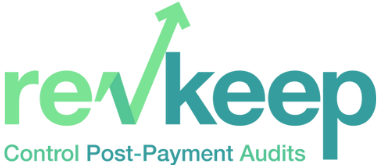Understanding RAC Audits:
RAC audits, or Recovery Audit Contractor audits, play a crucial role in the healthcare industry. Conducted by CMS-contracted auditors, these audits aim to identify and recover improper payments made to healthcare providers. RAC auditors focus on billing errors, coding discrepancies, and non-compliance with Medicare policies. Navigating RAC audits successfully is vital for revenue integrity, compliance, and financial outcomes for healthcare providers.
Key Aspects of RAC Audits:
To better understand RAC audits, it’s important to delve into their key aspects. Here are some essential elements you need to know:
Audit Triggers and Targets:
RAC audits are initiated based on various triggers, including data analysis, whistleblowers, or targeted reviews. The auditors examine claims and medical records to identify potential overpayments or underpayments. Understanding the common triggers can help you be better prepared for an audit.
Audit Process and Documentation:
During a RAC audit, auditors request documentation to support the billed services. This documentation may include medical records, invoices, and coding details. Proper documentation is crucial for demonstrating the medical necessity and accuracy of the services provided.
Appeals and Denials:
Providers have the right to appeal RAC audit findings if they disagree with the results. It’s essential to understand the appeals process and the deadlines involved. An effective appeal can help recover denied payments and protect your revenue. The five (5) levels of the Medicare appeals process are:
- Redetermination
- Reconsideration
- Administrative Law Judge hearing
- Medicare Appeals Council review
- Judicial review
Challenges in RAC Audits
RAC audits can present significant challenges for healthcare providers. Here are some common pain points that providers face:
Manual Processes and Insufficient Resources:
Manual processes and limited resources can hinder the efficiency of RAC audits. Managing post-payment audits can be overwhelming, with hours spent reviewing documents and communicating with insurance companies. This manual approach increases the risk of errors and revenue loss.
Complex Audits and Ever-Changing Regulations:
RAC audits involve complex regulations and guidelines that are subject to frequent changes. Staying updated with these changes and ensuring compliance can be a daunting task. Non-compliance can lead to penalties and financial setbacks.
Time Constraints and Stress:
The workload associated with RAC audits can be time-consuming and stressful for revenue cycle management teams. Struggling to keep up with the workload increases the risk of mistakes and can negatively impact the financial health of the organization. It is standard to have 30-45 days to reply to any and all requests.
Strategies for Successful RAC Audits
To navigate RAC audits successfully, it’s crucial to adopt effective strategies. Here are some tips to help you optimize your audit outcomes:
Implement Automation and Technology:
Leveraging technology, such as revenue cycle management software like RevKeep, can streamline the audit process. Automation features help reduce manual efforts, improve accuracy, and save time. With advanced analytics and compliance tools, you can identify potential issues before they become audit triggers.
Enhance Documentation and Coding Practices:
Accurate and detailed documentation is essential for successfully defending claims during a RAC audit. Ensure that your coding practices align with the latest regulations and guidelines. Regular training and audits can help identify areas for improvement and reduce the risk of coding discrepancies.
Stay Updated with Regulatory Changes:
RAC audit regulations and guidelines are subject to frequent updates. Stay informed about the changes through reputable sources and professional networks. Regularly review your processes to ensure compliance with the latest requirements.
Simplify RAC Audits with RevKeep
RevKeep offers a comprehensive software solution designed specifically for revenue cycle management teams. With its user-friendly interface and advanced automation features, RevKeep simplifies the RAC audit process, reduces errors, and optimizes revenue cycle management.
RevKeep helps RCM teams streamline RAC audits and win more of them with an easy-to-use software solution. By eliminating manual processes and providing real-time analytics, RevKeep enables teams to focus on high-value tasks and spend less time on administrative burdens. Gain confidence and take control of your post-payment audit process with RevKeep.
Conclusion:
RAC audits are a critical aspect of revenue cycle management for healthcare providers. By understanding the key aspects, challenges, and strategies involved in RAC audits, you can position your organization for success. Simplify your audit process and optimize outcomes with RevKeep software, your trusted partner in streamlining RAC and private payor audits.
RevKeep helps RCM teams Win More RAC & Private Payor Audits. RevKeep helps RCM Teams streamline RAC & private payor audits and win more of them with an easy-to-use software solution. Visit us at www.RevKeepSoftware.com.


